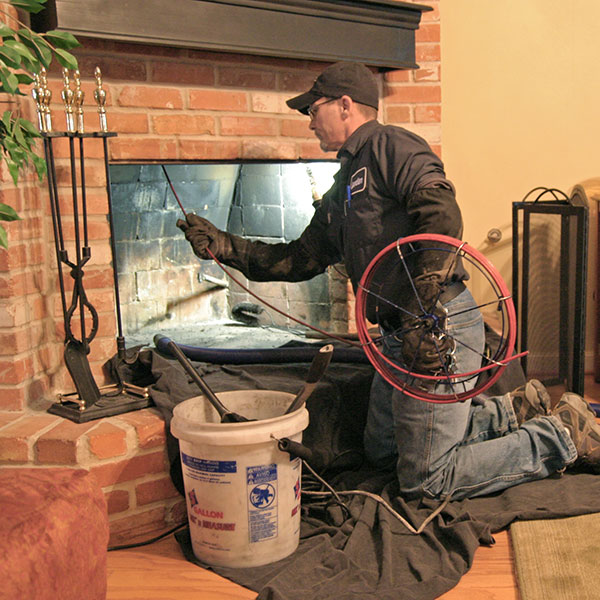Your chimney should be inspected regularly to ensure safety and effectiveness. Regular inspections can help keep homes free of potential dangers like flue blockage as well as water damage and carbon monoxide leaks. They are easy to avoid but can cause significant damage if left unnoticed. You might be considering buying a home for the first time, or perhaps you want to ensure that your fireplace is in great condition.

The maintenance of your chimney is essential to ensure that it’s in good working order. A professional can help find potential hazards, such as creosote accumulation or blocked chimneys. This can lead to dangersome chimney fires and smoke. Routine inspections of your chimney will ensure that the chimney’s structure is safe and will prevent the accumulation of carbon monoxide that can keep you and your family secure. An inspection conducted by a professional chimney inspector is necessary to ensure safety-conscious operation for the long term.
In the course of the inspection, the technician is looking for signs of damage, obstructions, clearance from combustibles or fire hazards, adequacy of ventilation, as well as the accumulation of creosote that could cause a chimney fire. The amount of time used and any signs of deterioration should all be taken into consideration when checking the chimney. A professional cleaning service may be required if there are any accumulations of dirt in your chimney. You can be confident that your chimney is safe and safe by performing regular inspections.
It is imperative to act immediately when you spot the presence of damage or issues in your chimney inspection. You should contact an expert based on the nature and severity of the problem to assess it and make recommendations for repairs. It is essential to take care to fix any issues that are discovered in inspections as quickly as you can. This can prevent fire hazards and other long-term harm. If a chimney sweeper or inspector recommends replacing components of the chimney or making repairs, it’s generally advised that homeowners follow their advice and finish the tasks as soon as possible.
Preparing your house for a chimney inspection could be an essential aspect in protecting your family. It is essential to ensure that any combustibles, like curtains, furniture, and other items, are at least three feet away from the fireplace. Also, take down any obstructions to the fire, like bookshelves or boxes that have been stacked. Also, clean any ashes and soot which could have been accumulated in the off-season. This will ensure that the chimney inspector is able to check your fireplace’s safety and thoroughly.
Regular examinations of your chimney will give you peace-of-mind. A skilled professional will be able to determine any areas that might require repair or cleaning, saving you from repairs in the near future. An inspection can reveal energy-efficient ways to utilize your fireplace or chimney more efficiently. Don’t let the time of year stop you from getting an annual chimney inspection – call a reputable inspector today and enjoy secure and efficient heating for the foreseeable future.
Chimney inspections are a crucial part of maintaining your home, and protecting your family. They can bring assurance that any issues are dealt with, and the possibility of catastrophes are avoided. Prevention is always the best choice. In this case, it is. The chimney should be inspected annually to prevent soot accumulation and heat from creating dangers to your home from fire. Also, they ensure that carbon monoxide levels are low enough to keep everyone safe. All of these advantages come at a fair price therefore a chimney inspection is definitely worth it! Even though it can seem like a burden sometimes, remember that when it comes to safety it is not a good idea to make a mistake or take any chances with something like this. You can now inspect your chimney and take a breath of relief knowing that you have effectively secured your house and the residents living in it.
For more information, click chimney inspection